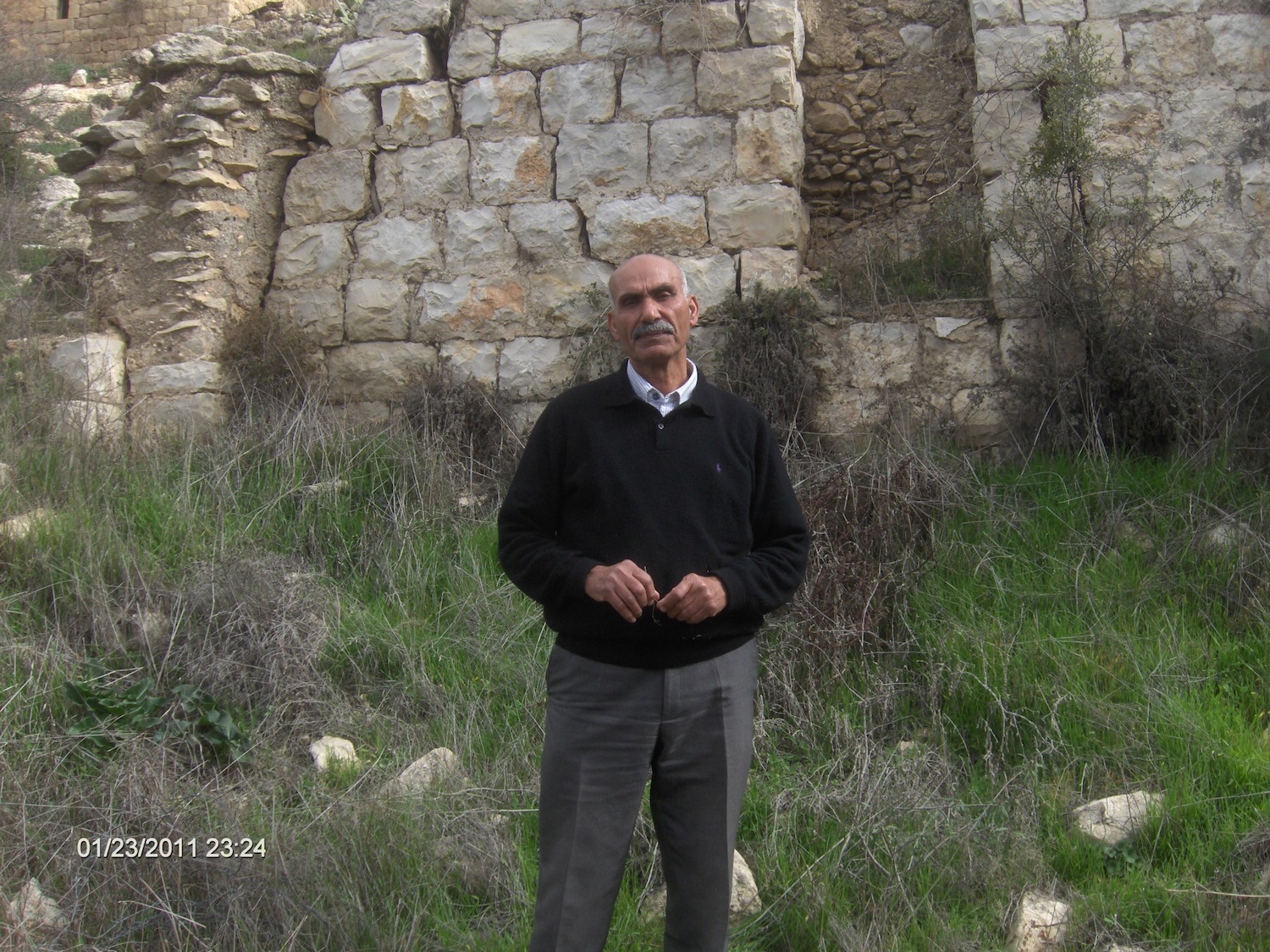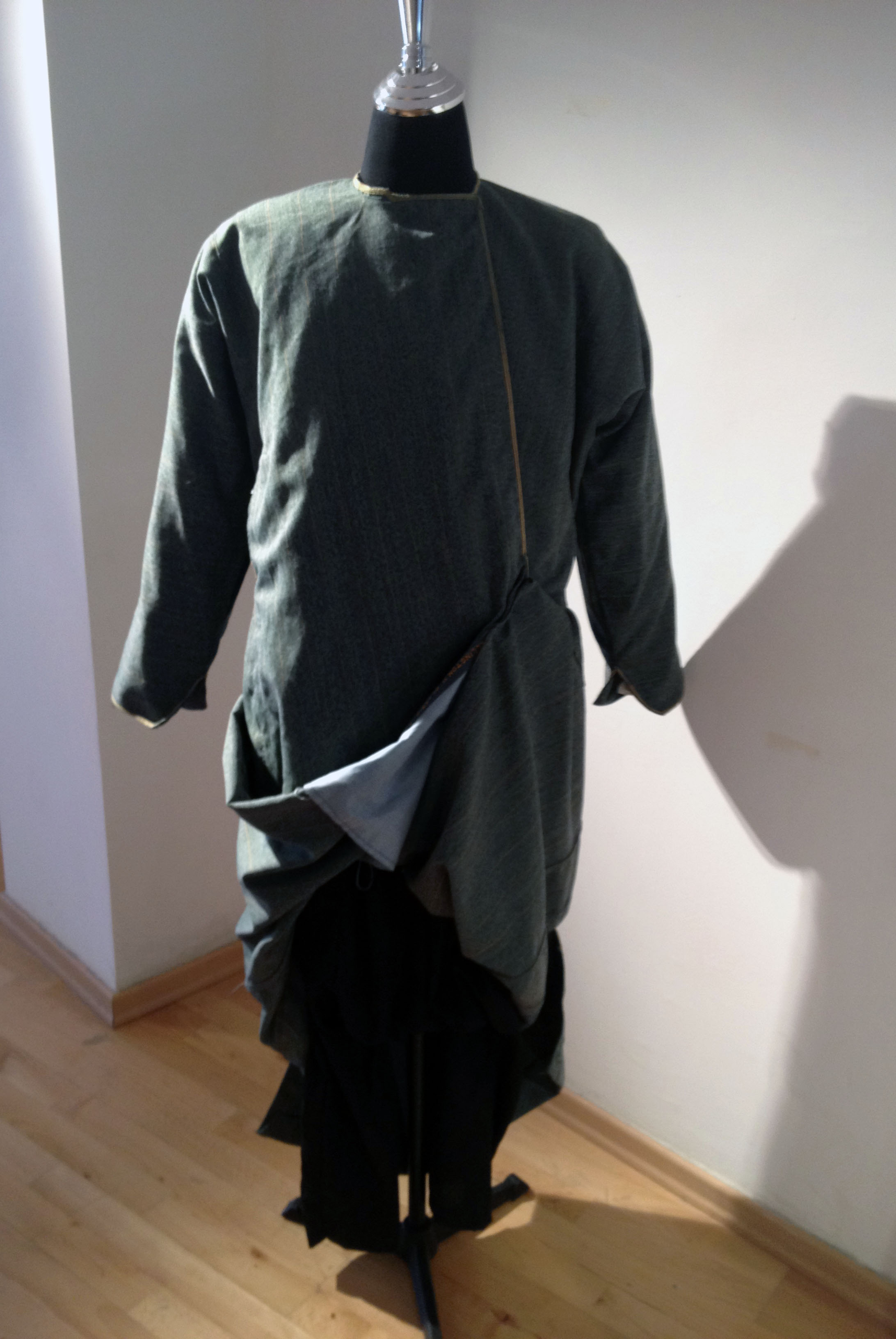
Laura van Rij (LR): What is your connection to Lifta?
Yakoub Odeh (YO): I am a refugee from Lifta, living in Jerusalem now. I was born in Lifta, when I was 8 years old we were kicked out. I remember my father carried my small sister and my brother on his shoulders. We climbed to Jaffa road, where a truck was waiting. There were three families already in the truck. Jaffa road was blocked by the Zionist gangs so we had to go west to Ramallah. I never forget that truck, the Haj Hamed truck. Once I was giving a speech in Ramallah for Liftawi´s there. When I finished the speech one Liftawi came up to me and said ´You know I promised you that this truck will be on the streets again´. I said I hope one day we will go back in that truck. Haj Hamed´s son kept it and renewed it! It was a Dodge from 1938. The man was wearing the traditional dress, in the way his father wore it when he drove the truck. When he came with the truck, people were weeping, and I was one of them. I know that we will not go back in this truck, but it is education for the younger generations. Lifta is just one of the 538 villages that got destroyed in 1948, in the Nakba. We are refugees from Palestine, we didn´t come from Tokyo or the moon. Lifta reflects the Palestinian case; it is a kind of symbol.
LR: How do your children look at Lifta?
YO: We organise tours to Lifta especially for the second and third generation. Maybe you heard what Golda Meir said about the Palestinians, that they will forget their land. But I´m sure she was wrong. No one will forget. The old people gave us the message and we are sending the message to the younger generations. My children are even better in telling the story than me.
LR: Is there a place in Lifta that you always visit when you are there?
YO: I used to visit all. Lifta is my home. I was born there in a house– a part of this house is still standing- that my father and grandfather were born in as well. I have special feelings for this house, but I consider all of Lifta my house.
LR: Did you take things with you from Lifta?
YO: Sure. One time I was visiting my family’s house. I have a stick, it struck something, metal. I picked it up and saw it was a part of one of the doors of our house. I took it with me. I used to have my father’s heritage dress – it is named alqumbaz - but when the Israeli´s destroyed our house in 1969 we lost many things. We lost the key to the house in Lifta, we lost my father’s dress, the dress he wore when we fled from Lifta. They were shooting at us; they shot right between his legs. He wasn´t injured, but there were holes in the dress, from the bullets. My mother kept the dress as a witness to what happened, and for her husband´s smell. My father died early, his nerves were affected by what happened. My father stayed three months longer in Lifta then us, the men remained there to fight. When he found us afterwards we were in a miserable state. We had no money, nothing. It was difficult for him, in our village we were like kings, and now we were on the streets asking for food. They killed our dignity. He could not eat. His stomach and breathing were not good, his nerves. He died when he was 35 years old. When my father died, my mother became mother, father, teacher, leader… My mother was so great.
LR: Where is your house?
YO: I have two houses. One on the slope of the road to Jaffa, and the other is about thirty metres from the water spring, the Ala´ein. This is the house my father moved to when I was two years old. My grandfather´s house was not big enough anymore. I remember that from the balcony we could watch the life in the village, which was centred around the water spring. It was such a beautiful, quiet life. I remember these days; I was playing with the other kids, spending time in the garden, like other people everywhere. I love my memories. I also remember the house I was born in, my uncle’s house, because we went there all the time. I remember the arch we passed on our way to the house; the bakery was on our right. In the house we go directly to the second floor, at the end on the left is the room where we were living. There was a large yard, we spend a lot of time there… The first floor was for animals, my uncle had cows and sheep and a donkey. And chicken, every house had chicken. The lowest floor was for storing the food. We were with at least four families in that building. The roof fell down in 1993, that winter there was a lot of snow. Because they made holes in the roof water came inside and destroyed it. But I remember the roof, I remember. The walls are still standing up, waiting. Tell the walls that I won´t kneel. Do you think I will kneel? Never. I keep standing up because I have a justified case. All we are asking for is to live free in our country like you and the others in this world. This will not go on forever. Who studies history knows the future. Where is the Roman emperor? The French one? Where are the British?
LR: How do you see the future of Lifta?
YO: We are struggling to keep Lifta at least in the condition that it is in now. But we want to renovate it. Not to go back and live in it, but to keep it. Like a historical architectural museum. These things have to remain for the future. As an eyewitness, as a lesson for our future.And to remain as an open area, for all. I dream of going back to Lifta, renovate the houses and live there. I dream, I hope that time will come, if not my generation, then the coming generation. But now we are struggling to keep the bulldozers away from Lifta.
LR: Is it not difficult to imagine your own house as a museum?
YO: Sure, but now, because of the occupation, all of the village is a museum, its houses, its roads...Now they plan to destroy it, together with our memories, our life. It´s not possible to go back home now, so let’s keep Lifta as an eyewitness, as cultural heritage, as an open museum. Removing our village, our houses, is also ethnic cleansing. We are not talking about something that happened 2000 years ago, we are talking about my memory, and I am still alive. And the village is here, you can touch it.

הלבוש שאביו של יעקב לבש כשעזבו את ליפתא / The type of the dress Yaakub's father wore when they left Lifta

